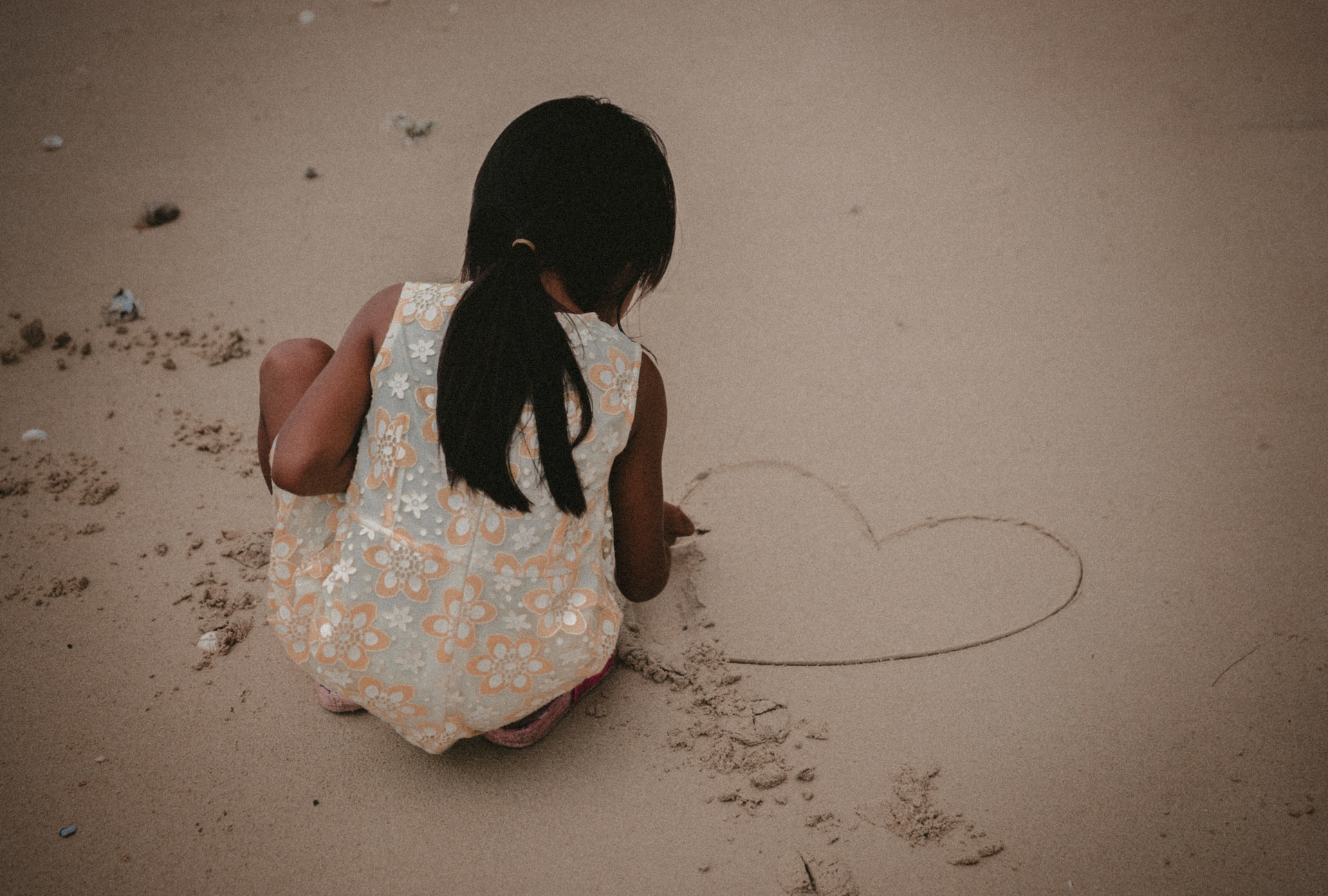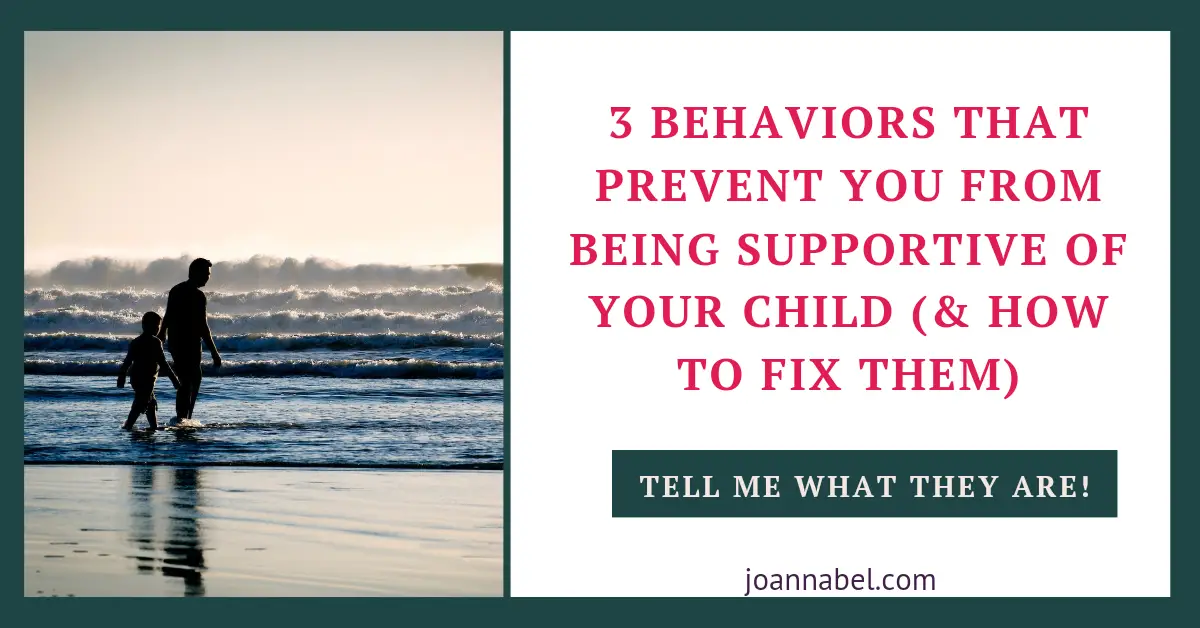In the journey of parenting, one of the most significant milestones is witnessing your children develop independence. The ability to navigate the world with confidence, make decisions, and assert oneself is a vital aspect of growing up. But what exactly defines an independent child – what are the characteristics of an independent child?

5 Characteristics Of An Independent Child (Signs Of Self-Reliancy)
Understanding the characteristics that are signals of child independence can provide valuable insights into fostering self-reliance and resilience in our children. In this post, I’ll delve into five characteristics of independent children, exploring what they entail and how they shape the development of our young ones.
You have to look for all 5 signs before deciding what’s the case for you here, because some things may seem similar on the outside but are very different once you take a closer look. You’ll get what I’m talking about once you read all 5 characteristics.
Join me on this exploration as I uncover the traits that pave the way for confident, self-reliant individuals.
Note: Although I am a Clinical Social Worker, engaging with this website does not establish a professional social worker-client relationship. The information provided here is for general purposes only and should not be considered professional advice. While we strive to ensure accuracy and reliability, this content is not a substitute for professional guidance. For specific concerns, issues, or situations, it is essential to consult a qualified professional and present your situation. Read the full Disclaimer here.
CHARACTERISTICS OF AN INDEPENDENT CHILD

#1 AN INDEPENDENT CHILD TAKES INITIATIVE
An independent child is proactive in taking action and doesn’t just wait for others to tell them what to do. They’re comfortable exploring new tasks and activities on their own initiative. This doesn’t mean that they won’t listen to what you ask them to do; it’s just that they’re not insecure when it comes to initiating activities or movements, doing their own thing, and suggesting a course of action.
I know that obedience is seen as a virtue when it comes to children and parent-child dynamics, but know that the child who’s not conforming isn’t a ‘bad’ child and most likely is a good child who stands up for themselves and usually for others as well.
So if you see that your child tends to take initiative when it comes to their activities and interests and is mischievous, you probably have a good combination of an independent and strong-willed child. This is the child who won’t follow the crowds and will think critically about their choices and actions.
In the past (and unfortunately still to this day), adults tend to restrict children from self-expression and individuality for different reasons, and this is why non-comformant behavior looks like a red flag for them, but you need to use your own discernment here to look closely for what the truth is.
Is your child harming anyone by asking questions? By saying no? Or are you just uncomfortable with disobedience, so this is on you and not on them?
The same goes for other adults in their lives—you have to take the child’s point of view into consideration before deciding or declaring that something is off with your child’s behavior. This should never mean only listening to their side, naturally.
It simply means to take enough time to put the whole situation in perspective and then decide where the truth lies.
Now, you also have to pay attention to whether the child is relying on themselves too much (too independent) when it comes to initiating their activities, as this may indicate that they feel like they shouldn’t or can’t rely on others. Or they presume that those others won’t think about their interests, so they tend to focus only on themselves and what they see as a good choice for them.
Here you have a few helpful blog posts that go deeper into these topics:
#2 AN INDEPENDENT CHILD IS CONNECTED TO THE ENVIRONMENT BUT CAN TOLERATE BEING SEPARATE
This suggests that the child is both engaged and curious about their surroundings but is also comfortable spending time alone or working independently without constant supervision or interaction.
When there’s an enmeshed family dynamic, family members can’t tolerate separation well. While when there’s low engagement, the members tend to be too distant, which means there’s excessive separation going on, which affects the feeling of closeness and dependency.
And if there’s a good balance of dependency and independence, closeness and separation, then there’s more balance within the family dynamic. So if you see that a child can balance these well, that’s a sign that there’s an optimal level of independence.
And in the case of imbalance, you’ll see that the child is either having difficulty tolerating separation from others or they have trouble relying on them. This might indicate that they do want to be able to depend on them but they think (or know) they can’t for some reason.
However, we have to analyze infants and very small children differently when we look at things, as they are still heavily reliant on others to take care of their needs. So then, if you see, for instance, that an infant is playing alone but they want to see that you’re close by (so they can reach you), that’s just a sign of a secure attachment between the two of you.
They are separate, but they know that you’re there if they need you, which is why they look for you. If they’re unbothered by you leaving the room, this will indicate that they don’t expect you’ll respond to their needs, which is why they didn’t react once they saw you weren’t there.
Read about balanced and inbalanced family dynamics in my post What The 5 Parenting Style Is: All You Wanted To Know.
#3 INDEPENDENT CHILDREN ARE BEING DEPENDENT ON OTHERS BUT TEND TO DO THINGS BY THEMSELVES
I mentioned something similar already, but I need to point this out because, when it comes to older children especially, this is a clear indicator that there’s balance with independence.
So while they understand the value of cooperation and may seek help when needed, independent children prefer to tackle tasks on their own whenever possible. As you can see, they exhibit a balance between self-reliance and collaboration.
So they will be able to work alongside others and have a healthy level of collaboration, but they will also want to do things by themselves too. And they won’t use them to get ahead or sabotage their progress in some way for their interests. Or, on the other hand, always sacrifice themselves for others.
We all need to feel supported by others and to know that we can rely on them, so if you see that this is troubling for your child, you should step in to see why this is so.
Are they accustomed to only meeting the needs of others?
And what part did you play in this as a parent?
Have you been able to meet their emotional needs? (There’s no judgement here, as this is usually so because parents have too much on their plate, like, for example, many single parents. Just become aware without judging or blaming yourself.)
#4 AN INDEPENDENT CHILD TENDS TO SOLVE THEIR PROBLEMS BUT COMES TO YOU FOR HELP WHEN IT’S IMPORTANT
Independent children demonstrate problem-solving skills and a willingness to tackle challenges autonomously. However, they recognize when a situation requires additional support or expertise and are willing to seek guidance from trusted adults when necessary.
And it’s not just about whether they recognize the situation calls for support; it’s also about whether they feel like they can rely on adults around them, which makes them reach out to them or not.
Some parents prefer that their kids are scared of them, as they believe this is the only way to keep kids out of trouble. But the thing is, when they’re fearful, they may not ask for help at critical moments as they’re afraid of your reaction.
It’s much better when they can come clean to you for their mischievousness because they can count on you to understand their mistakes or bad judgements, as no one is perfect. Especially kids who are new to life generally speaking.
If you cannot create a safe space, they will lie and hide, and if there comes a situation when they really need you, they may make the wrong call not to reach out for help. This might put them in a very dangerous position.
Not having their back will mean that they have to be too independent and that they have to talk to others instead of you.
And sometimes those others turn out to be people who don’t have your child’s best interests in mind and are even predators on the lookout for kids who are distant from their parents for different reasons. Just a heads-up for those of you who prefer kids to fear you.
#5 A CHILD “FIGHTS” FOR AUTONOMY AND TO HAVE THEIR VOICE HEARD
Independent children assert their autonomy and advocate for themselves in various situations. Meaning that they express their opinions and preferences confidently and assertively, seeking to have their voices heard and respected by others. This characteristic reflects their growing sense of self-awareness and self-advocacy.
If your child behaves like this, that’s a strong sign of independence and growing autonomy, considering that the world is organized around preventing children from participating in decision-making on things that affect their lives indirectly or directly. Instead of doing everything in its power to enable children to take part in all things that impact them.
Being so, they feel like imposters in their lives, as they’re accustomed to being the last to have a say on their matters since they’re dependent on adults. This makes many of them withdraw from asserting themselves and letting their voice be heard.
As you can see from this description, if your child is aware of their voice and is ready to use it, you’ve probably played your part in it by opening the space for them to speak their mind and share their views and feelings. This made them more self-aware.
Especially in comparison to most children who aren’t in such a good position. So cudos to you!
Read if you uncovered that your child should become more independent: How To Raise An Independent Child (9 Principles To Follow).
If you found the information on the blog helpful & inspirational and you feel like giving back, you can do it by clicking the donate button after entering amount you’re comfortable with. I’ll use it to create and deliver more useful content and resources like this. Thanks for your precious contribution!
Latest Posts:
- Simple Safety Measures To Protect Your Family

- The Biggest Benefits Of Adopting A Dog For Your Family (5)

- How To Turn Crafting Into Family Fun Time (6 Ideas)

- Creative Ways To Play With Kids Without Technology

- How To Make Gift-Giving More Special For Kids (4 Ideas)

- How To Do A Prenup Online (What To Expect)

FINAL THOUGHTS ON CHARACTERISTICS OF AN INDEPENDENT CHILD
From taking initiative to advocating for themselves, these traits not only signify the independence of a child but also lay the groundwork for future success and well-being. By understanding and nurturing these qualities, parents and carers can empower their children to navigate life’s challenges with confidence and resilience.
I hope you found these insights on the 5 characteristics of an independent child helpful, and I’ll see you in my next post! Here’s one:










Leave a Reply